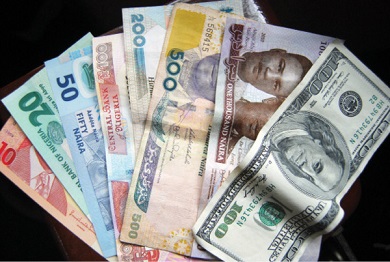The policy of the Central Bank of Nigeria restricting forex for 41 items has taken a negative toll on businesses in Nigeria’s maritime industry, particularly the port sector.
According to stakeholders, the sector has suffered no less than 62 per cent reduction in business since the review in June 2016.
It has reportedly also led to massive loss of jobs, with close to three millions employees losing their jobs due to inability of the industry players to break even.
Adding his voice to the call on the Federal Government to reverse the policy, spokesman of the Seaport Terminal Operators Association of Nigeria (STOAN), Mr. Bolaji Akinola, said if nothing is done, the industry would face more crisis than could be imagined.
He noted that “There is now an urgent need for the government to return life to the ports if it is sincerely wishing to find solutions to the economic challenges that Nigeria is facing”.
It would be recalled that the CBN in its bid to find a solution to the scarcity of dollars in 2016 came out with a list of about 41 items excluded from the import list.
But Akinola addressing the media at the weekend insisted that the policy had seen to Nigeria not being able to maintain its lead as the maritime hub in West Africa, as more of the import activities now take place in neighbouring Cotonou ports in Benin Republic.
Other operators in the sector said the worst hit in the negative impact of the Federal Government policy are the clearing agencies.
Matthew Uba, chairman, Customs Licenced Agencies, Tin Can Island Port Customs branch: “We had, right from the day that the CBN Governor, Godwin Emefiele, came out with the import list ban, predicted what is happening in the sector today.
“Even the promise that the list would be reviewed after six months has not been kept. Rather, more items have found themselves in the list, making it up to 50, going by what the Customs have for the importers.
“It is not exaggeration to say that more than 40per cent of goods, coming into Nigeria, are routed through the Cotonou ports in the past one year,” Ubah maintained.
Other reports say the import restriction list is only enriching personal pockets of Customs and officials of other security apparatus within the maritime industry, most of who are collecting illegal tolls from importers.
But CBN spokesman, Isaac Okoroafor, said there is no country that allows its borders open for all manners of goods, and that “The CBN is working hard to return the economy to its best shape, and has been carrying all stakeholders along.”







